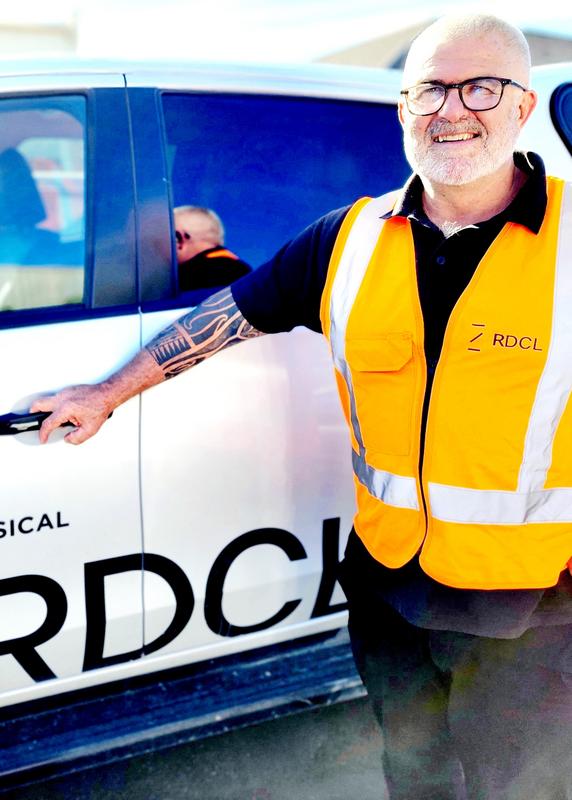Site investigation holds an undeniable significance in the construction process. Cam Wylie from RDCL explores the value of a thorough site investigation and its potential to save money and create value in the long run, even with the initial investment.
Can we put a dollar figure on understanding the ground beneath what we build?
It is widely recognized that site investigation plays a pivotal role in successfully undertaking any construction venture. Countless articles, essays, and reports emphasize its criticality and the need for careful consideration. In short, conducting a comprehensive site investigation can create cost reduction for a project.
At RDCL, we regularly see construction problems stem from unforeseen ground conditions that could be pre-empted through a proper site investigation. In the Philippines we see this manifesting in large infrastructure projects like tunnels, dams, transport corridors and flood protection being a major part of nationwide growth.
The implications of these oversights can be extremely costly both short and long term. Considering the monetary cost impact is one piece of the picture. As well as this, we are also talking more broadly about the very real costs to the resilience of the people, whenua (land), and infrastructure in future risk scenarios.
Alarming, isn’t it? Despite the proven cost-effectiveness and overwhelming evidence supporting thorough site investigations, industry / geotechnical specialists we talk to in various associations across the country regularly express concerns about the insufficient quality of site investigation data they often receive.
What is site investigation?
Put simply, site investigation involves gathering essential information and data below the ground to conduct an accurate assessment of the risk. Through this, potential hazards lurking beneath the ground can be identified, allowing engineers to design foundations based on reliable data regarding the physical properties and arrangement of sub-surface materials.
The scope and design of each investigation depend on factors like anticipated geology, previous site usage, and construction proposals.
Our specialist team of Geotechnicians use a variety of solutions and tools for each project. Generally, site investigations encompass four to six stages, each serving a specific purpose.

On-site testing = better precision, better decision-making
While it's true that on-site testing during investigations is more cost-effective than laboratory testing, the latter yields significantly more precise data. Unfortunately, what we often see is the choice of techniques being driven by financial considerations, rather than aligning with the actual ground conditions. This inevitably leads to complications.
In the Philippines, where RDCL operates, recognizing the value of a thorough site investigation can make all the difference. By investing in this critical process, the construction industry can ensure efficient project execution, minimize unforeseen challenges, and achieve long-term cost savings and value.
If we want to contribute to a thriving future, we must be taking a long-term view to our projects.
The foundation of successful projects
In the realm of construction, a thorough site investigation serves as a crucial step to address uncertainties related to contamination and ground conditions. Neglecting to adequately mitigate ground risks during the initial planning stages could have substantial ramifications on the project's cost and timeline. Timely identification and mitigation of ground risks is imperative for project success.
It is often underestimated how site investigation can lead to cost savings. By investing dedicated efforts in this crucial aspect, construction projects can maximize financial efficiency.
Regardless of the approach chosen, site investigation is a pivotal step in the construction process, and a non-negotiable task that should never be skipped, hurried, or disregarded under any circumstances.
A wise investment
What is often underestimated is how site investigation can be a total game-changer when it comes to saving money. By accurately matching subsequent ground engineering work to the actual ground conditions, costly guesswork and "over-engineering" can be avoided, safeguarding projects from future unknowns.
For projects in the Philippines, every dollar counts. It is crucial for our project decision-makers to recognize the value and significance of site investigation.
So, let’s change how we look at things and see this is a prudent investment that ensures smoother construction, reduces financial burdens, and brings projects to completion on time.
Digging deeper: what is a Detailed Site Examination?
Sometimes, a preliminary site investigation doesn't paint the full picture when it comes to designing and building foundations. That's where a detailed site investigation becomes indispensable. It's like going the extra mile to make sure we've got all the facts straight.
During this phase, we uncover any potential contamination, material complexities, or conceivable risks that might have revealed themselves during the initial phase. It's all about conducting a thorough examination to ensure a solid foundation for your project.
A comprehensive site investigation involves a meticulous process that includes conducting multiple test borings to gather disturbed and undisturbed soil samples from various depths. These samples are then subjected to visual observation and laboratory tests.
The number and depth of borings will vary based on the project requirements. Typically, for most construction projects, starting with at least one boring at each corner of the planned infrastructure, and one at the centre, would be ideal.
Additional test borings may be necessary, guided by soil uniformity. It is vital to ensure that the test borings reach through unsuitable foundation materials and penetrate into the firm soil layers.
In the context of your project, this thorough site investigation approach will lay a strong foundation for successful construction, ensuring your project's integrity and longevity.
Cam Wylie, Director, RDCL
Cam Wylie is the Managing Director, CEO & Principal Engineer at RDCL Limited. With 30 years in the industry, Cam is a Chartered Professional Engineer with extensive overseas experience, working on major projects in the Philippines, Indonesia, Africa, Australia, and New Zealand. His expertise includes Project Management, Geotechnical/Dam Engineering, Mining, Roading, Infrastructure, large subdivisions, and Residential Dwellings, and he is a contributor to the Hawke’s Bay Cyclone Gabrielle Engineering Leadership Group.










